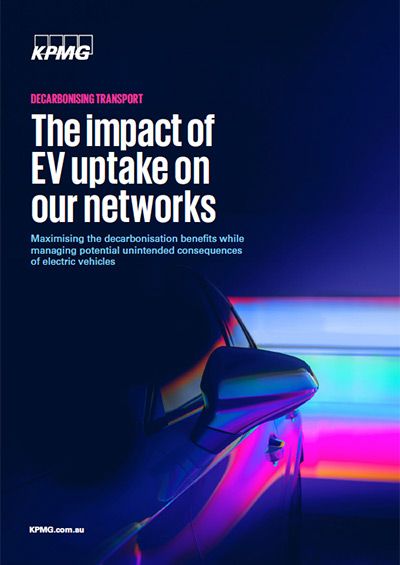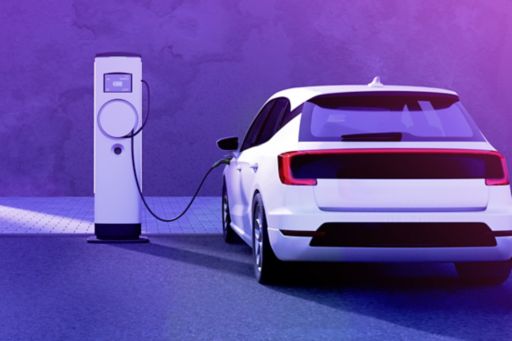Is green transport a silver bullet?
Decarbonising transport is a vital part of meeting Australia’s net zero commitments. In 2022, transport accounted for almost 20 percent of Australia’s emissions, and without intervention, is projected to be our nation’s largest source of carbon pollutants by 2030 (DCCEEW – Reducing transport emissions).
Electric vehicles (EVs) will play an important role in the decarbonisation process for transport. KPMG has embarked on a series of thought leadership topics aimed at exploring the sector’s challenges and opportunities. The goal: to provoke discussion and help develop policies and strategies to successfully decarbonise the transport sector.
In October 2022, KPMG released the first of these topics – accelerating electric vehicle uptake. This second topic explores the potential impacts of EVs on travel behaviour and future road network performance.
Exploring electric vehicle impacts
When combined with renewable energy sources, EVs will be a necessary part of reducing Australia’s carbon footprint. However, their introduction at scale may have unintended consequences that, without intervention, could counteract progress.
A key benefit of EVs are their lower operating costs – especially when compared with the more common internal combustion engine (ICE) vehicles.
But this benefit may trigger behavioural change that creates some unwelcome outcomes like:
- EV drivers favouring their car over public transport
- EV drivers travelling further distances
- an increase in road congestion
- an increase in emissions produced by ICE vehicles due to the heavier traffic.
Electric vehicle insights and analytics
To estimate the impact of EV travel behaviour on the economy and society, we used the KPMG Electric Vehicle Insights and Analytics Platform (EVIAP) which tracks EV volumes, technology, socio-economic trends, and policy efficacy at a postcode level in major cities. Find out more about EVIAP and our approach.
We then take these uptake forecasts and test their impacts on driver behaviour and network congestion.
Our analysis indicates the uptake of EVs could generate around $280 billion in economic benefits for Australia over 50 years. However, when taking into account the economic impact of increased road congestion, the benefits are projected to reduce to around $200 billion.
Complementary policy levers can help make sure the maximum benefits of EVs are realised and contribute positively to society.
Supportive strategies and policy settings
As Australians transition to EVs, we encourage governments and the wider transport planning and management community to consider policies and initiatives that maximise the benefits of EVs, and mitigate any adverse social, environmental or economic outcomes. These include:
-
Continuing to invest in public transport so it becomes a highly competitive and attractive transport option.
-
Continuing to implement urban planning policies that encourage walking, cycling and public transport use.
-
Policy measures to manage private vehicle demand.
-
Encouraging EV uptake by people living in outer metro suburbs or those from lower socio-economic backgrounds so usage becomes more widespread.
Why KPMG for your green transport initiatives?
KPMG’s global and local track record of success in decarbonisation, coupled with a unique combination of transport demand forecasting, economic appraisal skills, and deep sector experience across all transport classes puts us in a unique position to help plan for our cities and regions for now and the future.
KPMG's Planning & Infrastructure Economics team, part of our Infrastructure, Assets & Places group, can support immediate and long-term transport projects aiming to generate sustainable benefits for the community.








